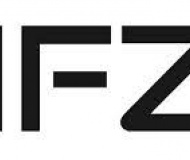Another attempt to legalize cryptocurency in Ukraine
Date added: :
27.09.2018
Draft Law, which can legalize the circulation of cryptocurrency in the ukrainian market, is registered in the Verkhovna rada of Ukraine

Intense debates on the sidelines of the Verkhovna Rada on the need to legalize the cryptocurrency market seem to have become more specified. This was reflected in the registration of Draft Law 9083 "On Amending the Tax Code of Ukraine on the Taxation of Transactions with Virtual Assets in Ukraine" of September 14, 2018, which should adapt the Tax Code to deal with virtual assets.
The Draft Law is the initiative of a group of deputies, who are thus determined to take out of the shadows operations with the cryptocurrency in the country and bring them into the legal channel. It should be noted that according to the authors of the document, the Ukrainian market, in the period 2014-2015, accounted for about a third of the world's total mining bitcoin, an average at just 100 million UAH per year.
In addition, an attempt was made to provide legal definition of such terms as: mining, virtual assets, blocking, and much more.
It is planned to introduce a 5% tax rate for companies operating in the field of cryptocurrency until January 1, 2024, which will subsequently be increased to 18%.
Attempts to legalize virtual assets occured in Ukraine before. Thus, last year in October , the Verkhovna Rada registered a Draft Law № 7183 entitled "On the circulation of the cryptocurrency in Ukraine", which was never adopted.
International practice demonstrates the dynamic interest of different countries in the issue of legalization of crypto-currencies and the presentation of services of their jurisdictions for their further functioning. Until recently, the largest cryptocurrency exchanges were located in the territory of Hong Kong, South Korea and Japan, but they were subjected to rather vague legal regulation.
The pioneer in this direction was Malta. Thus, the Prime Minister of Malta, Joseph Muscat, enthusiastically responding to the prospects for the development of cryptocurrencies, instructed the departmental structures to develop an appropriate legal framework for its legal functioning on the territory of the country.
As a result, this year in July , the Parliament of Malta adopted three important laws:
- Law on Digital Innovations,
- Act on Innovative Technologies, Agreements and Services,
- Act on Virtual Financial Assets.
The key message of all three legislative acts was the possibility of cryptocurrency exchanges to function legally in the territory of Malta, subject to payment of a 5% tax rate on income, which can cause huge financial injections into the Maltese budget.
Thus, Malta became the first jurisdiction in the world, which provided a legal definition in the field of cryptoregulation.
Currently several major cryptocurrency exchanges, such as OKex, Binance and Tron, have already reported about their intentions to become subject to the jurisdiction of Malta.
















